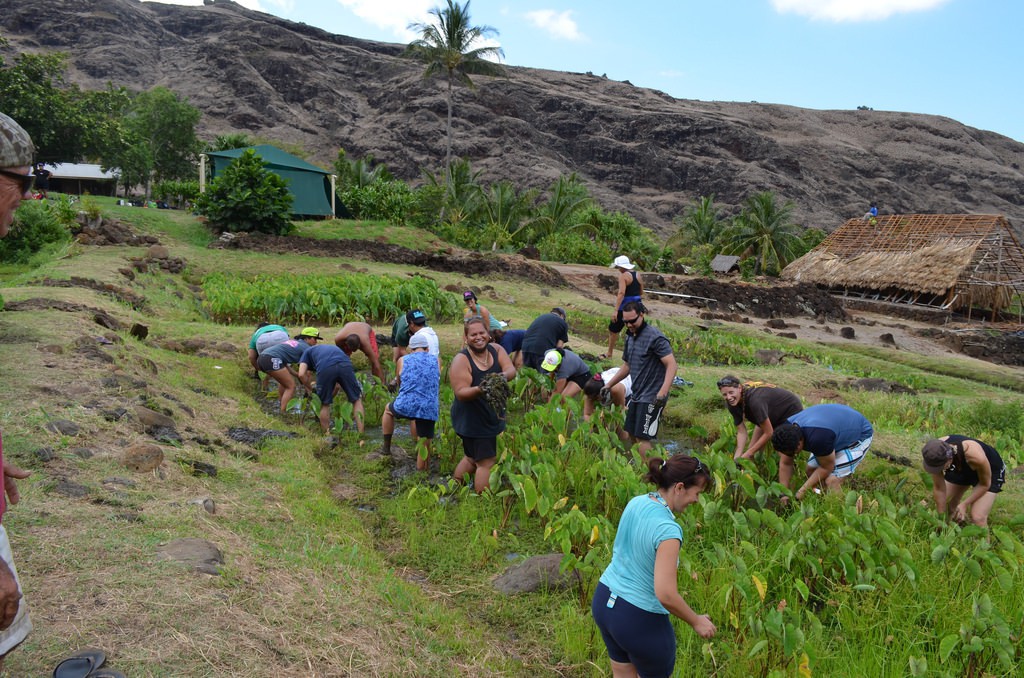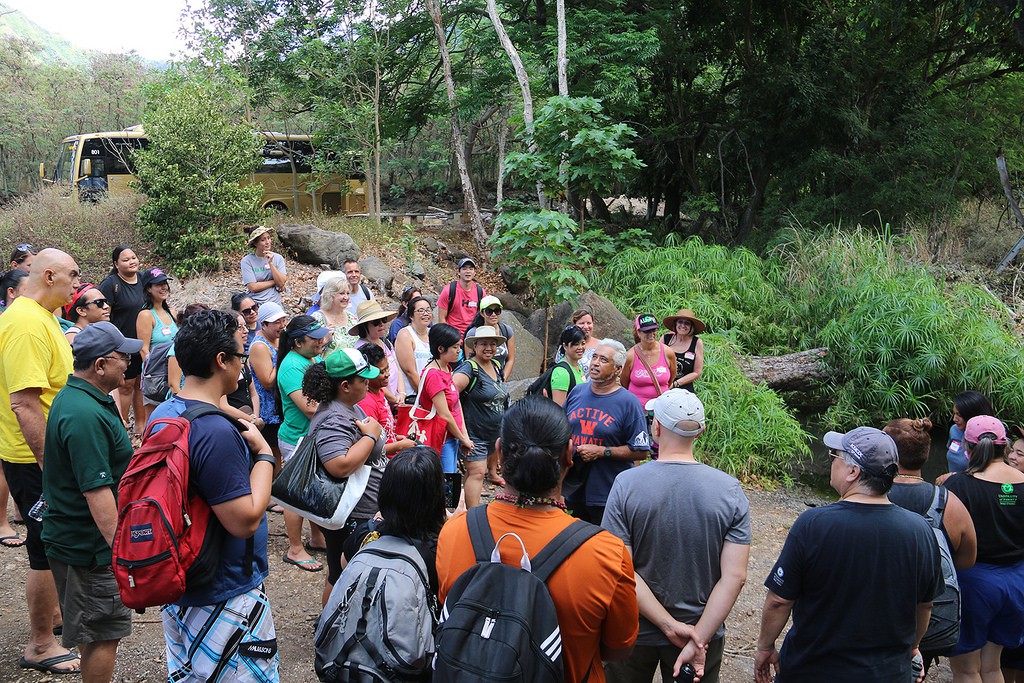
UHWO faculty and staff clear weeds in the loʻi kalo at Kaʻala Farms in Waiʻanae during Pili ʻĀina on Aug. 17.
On the way to and from the Waiʻanae coast on August 17, they heard from cultural experts Shad Kane and Nelson “Kiha” Rodrigues, who discussed the importance of the local moku (land district) and ahupuaʻa (land division or watershed), and how this history, largely passed down to the next generation as an oral tradition, has shaped the beliefs and values of those who call the area home.
Faculty and staff visited Kaʻala Farm, an ancient agricultural complex and cultural learning center in Waiʻanae, restored by owner Eric Enos and his team, to produce kalo (taro) as Native Hawaiians did for centuries. After learning about ahupuaʻa and how the ancient watershed was restored to the area, they were invited to clear weeds in the loʻi kalo, tour the farm, and listen to cultural presentations from UH West Oʻahu’s Dr. Manulani Meyer and Kauhale and MAʻO Organic Farms Director of Social Enterprise, Kamuela Enos.
UH West Oʻahu faculty and staff ended the day learning about the importance of the ocean in Hawaiian culture from Nā Kama Kai, a non-profit organization dedicated to educating youth and others about ocean safety and conservation awareness that incorporates Hawaiian values and culture. Faculty and staff learned about the star compass and navigation methods developed by Hōkūleʻa Master Navigator Nainoa Thompson, and about the significance of the geography of the Waiʻanae area including the original Hawaiian names of beaches and their significance in ancient Hawaiian history. They also received lessons in stand-up paddle boarding and canoe paddling at Mākaha Beach. The purpose of Pili ʻĀina is for UH West Oʻahu faculty and staff to gain a greater understanding of the land and culture where many UHWO students come from and help the University fulfill its mission as an indigenous-serving institution. This day of cultural exploration and team-building connects University staff and faculty with resources and information so they may perpetuate and exhibit an understanding of Native Hawaiian culture for the purpose of creating a culturally engaging campus environment at UH West Oʻahu.Pili ʻĀina was sponsored by the PIKO and PUEO Scholars U.S. Department of Education Title III grants and the UHWO Center for Teaching and Learning Excellence.
For more Pili ʻĀina photos, visit the UHWO flickr page.



